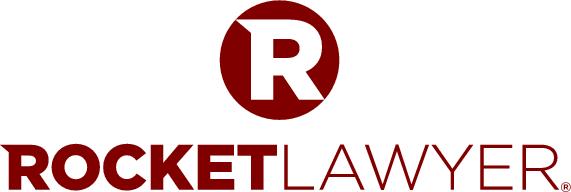Owning rental property can be a very lucrative investment. However, there may be some aspects of this business venture that may seem a bit overwhelming at times. Many successful landlords and property owners operate their rentals as a business. And like any business owner, you might be wondering if you should create an LLC for your company. There is no one-size-fits-all answer to this situation. Whether or not you should create an LLC for rental property is determined by a number of different factors.
We have been helping people manage their rental properties by providing insight and reviews of the best rental property management software on the market. Here, we want to help give you a better understanding of how to create an LLC for your rental property.
What is an LLC?
LLC stands for limited liability company. It is a business structure that some companies choose where they are not personally liable for the company’s debts or liabilities. There are many other business structures to choose from, including corporations and general partnerships. Many small to medium-sized business owners choose LLC because it is the simplest way to give them the protection they need.
When you create an LLC, you are a member of the LLC. You can create an LLC by yourself, with another person, or with many other members. LLCs are regulated by the state in which your company resides. Each state has different rules and regulations regarding LLCs, so it is always a good idea to check state and other local legal requirements before creating an LLC for rental property.
Our partners at RocketLawyer are offering a 7-day free trial and can help you start up your business, access and create legal documents, or even get answers from real attorneys.
Benefits of Creating an LLC for Your Rental Property
As we previously mentioned, an LLC helps to protect your assets if your company faces legal liability. With the implementation of new rental laws across the country, landlords and property owners find themselves increasingly at risk.
Also Read: Navigating New Rental Laws Using Property Management Software
However, liability insurance can help to protect you and your assets during a lawsuit. So, if liability insurance is available to your company, why should you consider an LLC? Liability insurance has its limitations. It may protect you against liability lawsuits, but it does not protect you against claims from your creditors. Additionally, LLCs have a few other benefits that liability insurance can’t offer.

There are other business structures available to companies of all sizes. However, here are the main reasons why small businesses choose to create an LLC:
1. Pass-Through Taxation
Every year, businesses have to pay taxes on the income that they generate. Also, you are required by law to pay taxes on the income (or salary) you pay yourself out of the business. This means that you may have to pay taxes twice for the money that you receive from your rental property. However, with an LLC, the money that your rental property makes each year is passed through to you and becomes a part of your earned income. This means that you will not be double-taxed, which could save you a lot of money each year.
2. Limiting Personal Liability
If you are the owner of a rental property, you have a risk of someone filing a lawsuit against you and your business. As an individual owner, a lawsuit against you could mean that your personal property is at stake. If your LLC gets sued, the only assets that you risk losing are the ones that are owned by the LLC. Only your rental property is at stake; your personal property can be completely off the table.
3. Separating Your Rental Properties
If there is a lawsuit that is filed against your LLC, your rental properties may be at risk. However, LLCs allow you to separate your rental properties from each other. You can set up a separate LLC for each property. This means that if there is a legal dispute involving one of your properties, only the property that is being disputed is at stake. The other properties will not be involved in any judicial settlement.
4. Separate Your Personal Expenses from Your Business Expenses
When you create an LLC, you can easily create a separate bank account for your company. This will help you to keep your business expenses separate from your personal expenses. This makes things a lot easier when it comes time to claim your business expenses on your tax form.
Disadvantages of Creating an LLC for Rental Property
While there are definitely several advantages to creating an LLC for your business, some individuals who own rental property feel that an LLC is not the right choice for them. Here are a few of the disadvantages of creating an LLC for rental property:
1. Higher Interest Rates
If you are planning on financing the rental property, you may not have to spend as much money upfront if you are an individual buyer rather than an LLC. FHA loans, for instance, offer low-interest rates and low down payments to certain qualifying buyers. However, LLCs do not qualify for an FHA-backed mortgage. Other banks are often more inclined to offer lower interest rates to individual buyers rather than LLCs.
2. Cost of Setting Up an LLC
Creating an LLC can be an expensive process. If you choose to hire an attorney to help with the process, you could end up paying around $1,000 in attorney fees alone. After that, you will need to pay a filing fee. The cost of the filing fee varies by state, but it can cost anywhere between $40 and $500 to register your LLC with your state’s Secretary of State office.
3. Liability Insurance
Liability insurance helps to protect you and your assets during a lawsuit. For example, if a guest slips and falls on your property, your liability insurance should cover the costs of injury. If you operate your rental property yourself, liability insurance may be all you need.
How to Create an LLC for Your Rental Property
Creating an LLC for your rental property is a lot easier than you may think. However, if you are financing any of the properties, you need to notify your bank before you create the LLC. Many banks have different rules and procedures when it pertains to loans on LLC properties. It’s always a good idea to let your bank know that you plan on creating an LLC for your property.
It’s also a good idea to consult an attorney who specializes in LLCs. Your attorney will look at your individual circumstances and give you advice on what the best course of action is for you and your business.
Choose a Name
After you have talked to your bank and your attorney and have decided that creating an LLC for your rental property is the right decision for you, the next step would be to create a name for your business. Make sure that your company’s name is creative and stands out. You also need to make sure that it is unique. If the name is already used by another company, then you will have to choose something else. Go to your state’s Secretary of State website and look at the business directory to determine if the name you chose is already in use.
Registration
Next, you will need to go to your state’s Secretary of State office or visit their website to register your LLC. You are required to fill out a few forms and answer some questions about your business. Once your LLC has been registered, you will need to apply for an employer identification number (EIN) with the IRS.
Consult an Attorney
The cost of creating and maintaining an LLC varies by state. You could end up spending several hundred dollars on the entire process. However, consulting an experienced attorney is definitely recommended, as they will walk you through the process of creating an LLC. They will also make sure that you are not skipping any steps, which could end up costing you more money in the long run.
Our partners at RocketLawyer are offering a 7-day free trial and can help you start up your business, access and create legal documents, or even get answers from real attorneys.
Disclosure: Some of the links in this post are affiliate links and Landlord Gurus may earn a commission. Our mission remains to provide valuable resources and information that helps landlords manage their rental properties efficiently and profitably. We link to these companies and their products because of their quality, not because of the commission.





